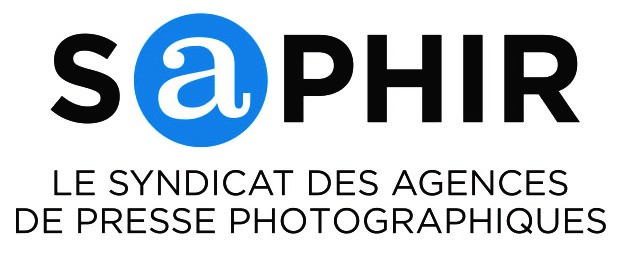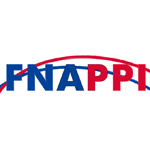Strasbourg, 24 November 2015
Speech by Vice-President Ansip in charge of the Digital Single Market at the Centre for International Intellectual Property Studies (CEIPI) of the University of Strasbourg
Ladies and gentlemen,
It is a pleasure to be with you today here in in Strasbourg. I very much look forward to our discussion.
Mais avant tout – je tiens à vous exprimer ma compassion et ma solidarité.
Je suis de tout cœur avec vous et je ressens la douleur de la France. Toute l’Europe est bouleversée en ces jours.
Mais la France n’est pas seule. Ensemble, l’Europe est plus forte que la haine.
Mesdames et Messieurs,
It is a pleasure to visit this famous institution, with its reputation as one of Europe’s top teaching and research centres for intellectual property.
Here, you are well aware of how digital technologies are changing the way that creative content is produced and distributed.
Consumer behaviour, of course, is changing too. People’s demands and wishes are very different compared with even just 10 years ago.
They want more on-demand services, more mobile viewing. One in five Europeans wants to access content from other EU countries.
Copyright is the key to all this.
It governs the relationship between users, creators, publishers: everyone who is involved in the creativity chain.
Today’s system was developed a long time ago, when the digital revolution was just taking off – before Facebook, YouTube or Twitter.
Today’s system is out of touch with the digital age.
Very soon, as part of our DSM strategy, we will take the first steps to modernise Europe’s outdated rules on copyright.
It will address some serious problem areas, like the mess of exceptions to the rules that apply across the EU’s 28 countries.
Many of these have cross-border effects and should therefore be more closely aligned.
This is particularly relevant in areas like culture, access to knowledge, education and research, and for people with disabilities.
Our aim is to widen people’s access to cultural content online.
We want to stimulate cultural diversity.
We want more culture circulating across Europe;
We want new opportunities for creators and the content industry.
Take back-catalogue material such as old films:
Their availability is usually limited to one or a few countries.
But I think there are significant profits to be made from selling small volumes of hard-to-find items to many customers across countries – instead of just selling large volumes of a limited number of popular items.
This would boost the ‘discoverability’ and appreciation of smaller films like art-house movies and documentaries – with no negative impact for distributors.
Or take out-of-commerce works: those which are still protected by copyright but which are no longer commercially available.
Why accept their limited availability in the national market and in other EU countries?
We will make it easier to digitise these works and make them more available, including across the EU.
There are other ways for us to help cultural diversity:
The EU has €1.46 billion earmarked up to 2020 in its Creative Europe programme to support the culture and audio-visual sectors.
We will use this funding to create catalogues of European films. We want to develop hubs to help the licensing of works not yet available in a given EU country.
There are also plans to develop a European aggregator of online and national search tools so that people can easily find works legally available to them.
We are quite inspired by the French CNC model for finding legal offers of movies.
With today’s copyright rules, it is not only film fans who are missing out.
It is the creative industry and associated businesses as well.
This restricted system is preventing everyone from making the most of Europe’s huge cross-border market.
Artists should not be prevented from getting a wider audience for their work because of barriers arising from an outdated set of rules.
They should be paid fully and fairly for their work, to support new creativity.
Ladies and gentlemen,
We do not want to destroy current copyright policies or overhaul them completely.
This is about making concrete, targeted and important improvements, in areas where the EU can make a real difference.
We intend to present our reform plans in a strategy paper in December.
This is also when the first concrete step will be taken: we will propose to give cross-border portability of online content to Europeans.
Put simply, this means allowing people who subscribe to online content services in one EU country – for books, music, games, films, drama, sport – to use those services when they are travelling in another country.
Often this is not possible today.
This will create more rights for consumers straightaway. Real benefits and impacts for people and their daily lives.
Another objective is to improve access to online services from other EU countries.
We are looking at various options. One of these is the review of the Cable and Satellite Directive and how it can be extended to online TV and radio programmes.
The DSM is about interlinked policy areas. Therefore we also look into the relationship between the creative sector and digital platforms.
It is a sensitive area and we have opened a public consultation to gather everyone’s views on the role of platforms. -
For example on the growing involvement of internet intermediaries in distributing content.
Please contribute to this consultation. It is open until the end of the year.
Lastly, a few words on piracy.
If we are to limit the commercial-scale piracy, copyright rules need to be properly enforced.
Piracy is also a drain on Europe’s s wider economy.
It just means everybody loses out. And the creators are first in line.
Too many people are tempted into illegal downloads, sometimes because there is no access.
According to a recent survey, 22% of Europeans think it is acceptable to download or access copyright-protected content illegally when there is no legal alternative in their country.
This clearly shows how important it is to give people a legal alternative, by improving cross-border access.
In parallel, we plan to tackle piracy by using a “follow the money” process with the industry, for instance working with the big brands and advertising professionals.
Our aim is to deprive commercial-scale infringers of their revenue flows.
Ladies and gentlemen
I hope this gives a flavour of what I believe needs to be done to make Europe’s copyright rules fit for the 21st century.
There is no time to waste: the digital revolution is happening now. We should take this very seriously. It also concerns the future of Europe’s cultural heritage.
European culture, whatever it is – films, drama, sport, books – has to be made digitally available on a large scale.
I say this because if it does not happen, if it is not digitally available and accessible on a larger scale, the world will simply stop noticing what we do.
European culture would ‘fall off’ people’s radar because they gradually become less aware of it.
Nobody wants that to happen. But as global culture goes increasingly digital, it is a real risk.
Our copyright changes will be gradual, but balanced and targeted.
This should be an evolution, not a revolution.
It should be about rules that give people better access to the cultural content that they want, while rewarding those who create it, and those who invest in its production.
To conclude, the DSM strategy has opened all the areas of the digital economy to see what needs to be changed and modernised.
The DSM is about reforming consumer rules, VAT, telecom rules, platforms, geoblocking, data, even parcel delivery.
Copyright is a part of this interlinked package. But we need to work on all these areas to ensure that Europe is ready and can benefit from the digital transformation. — Thank you.
















